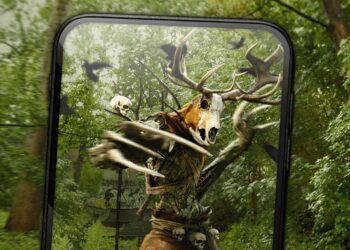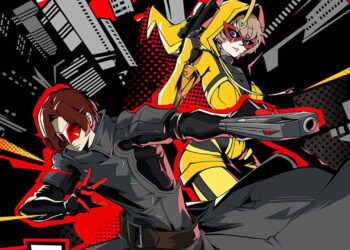In Quenya, general greetings and thanks include “namárië” (be well), “aiya” (hello), and “hara máriessë” (stay in happiness).
for instance, What is the Elvish word for moon?
Ithil: a Sindarin word meaning “the moon” or “(full) moon”. The word can be found in Minas Ithil, Ithilien, and ithildin.
significantly, How do you write in Elvish?
Notable features
- Direction of writing: left to right in horizontal lines.
- Tengwar is written is a number of different ways known as “modes”. …
- Vowels are indicated by diacritics (tehtar) which appear above the consonant which precedes them (in Quenya mode) or above the consonant which follows them (in Sindarin mode).
also What Elvish does Legolas speak?
Sindarin is the most common elvish language, and would be what Galadriel, Elrond, and Celeborn speak regularly. Thranduil was also Sindarin, and spoke the Sindarin language in his home (though not necessarily in public, at least during his early period in Mirkwood.) Legolas definitely speaks Sindarin.
How do you say goodbye in Elvish? The Quenya word namárië is a reduced form of á na márië, meaning literally “be well”, an Elvish formula used for greeting and for farewell. “Namárië” is the longest Quenya text in The Lord of the Rings and also one of the longest continuous texts in Quenya that Tolkien ever wrote.
Table of Contents
What is the Elvish word for dragon?
Sindarin has lhûg and amlug. In Gnomish, “dragon” is fuithlug (“a dragon who guards treasure”), lingwir or ulug (plural ulûgin; “she dragon” is uluch, uluchnir or ulugwin).
How do you say black in Elvish?
Derivations
- ✶mornā “dark” ✧ Let/382. √MOR “black, dark, darkness” ✧ Let/382.
- √MOR “black, dark, darkness” ✧ PE17/073.
How do you say moonlight in Elvish?
The word isilmë means ‘moonlight’ in Quenya.
What Elvish does Aragorn speak?
He also speaks Quenya, a.k.a. Valinorean, but that’s kind of like the 3rd Age version of Latin – an ancient revered language, but not one widely spoken or used day to day. In general, whenever a language in LotR is referred to as “Elven” or “Elvish” it means Sindarin.
How is Sindarin written?
Sindarin is loosely based on Welsh and was originally called Gnomish. … Sindarin is can be written with a number of alphabets, including the Latin alphabet, Cirth and Tengwar. The Tengwar script for Sindarin can be written with vowel diacritics (Standard Mode), or with separate symbols for vowels (the Mode of Beleriand).
Did Legolas marry?
After the destruction of the One Ring and of Sauron, Legolas stayed for the coronation of Aragorn II Elessar and his marriage to Arwen.
Why does Legolas look weird in the Hobbit?
Due to technical mishaps involving Bloom’s contact lenses, in the films Legolas’ eye colour sometimes changes between brown, purple, and blue. (In the director’s commentary of the Extended Edition, Peter Jackson admitted that they forgot to put Bloom’s contacts in several times.)
Is Legolas older than Gandalf?
Gandalf has a younger form in Middle-Earth who is appeared to be about 60 but in reality he is 2019 making him older than Middle-Earth. Legolas was not born in TA 87, that date was made up for a reference book to the films. His actual date of birth is unknown. … Tolkien never mentioned when was Legolas born.
How do you say go kiss an orc in Elvish?
Mîbo orch! (or Bado mîbo orch!) ….. Go kiss an orc!
What does Galadriel say to Aragorn in Elvish?
Galadriel: “That choice is yet before her. You have your own choice to make, Aragorn… to rise above the height of all your fathers since the days of Elendil, or to fall into darkness… with all that is left of your kin.”
How do you say cheers in Elvish?
A collection of useful phrases in Quenya, a member of the Amanya branch of the Elvish language family invented by J.R.R. Tolkien.
…
Useful phrases in Quenya.
| Phrase | Quenya |
|---|---|
| Cheers! Good Health! (Toasts used when drinking) | Almien! (To good fortune!) |
| Have a nice day | Nai aurelya nauva mára! |
| Bon appetit / Have a nice meal |
Is Smaug the last dragon?
Smaug was the last named dragon of Middle-earth. He was slain by Bard, a descendant of Girion, Lord of Dale. … Smaug had only a single weakness: there was a hole in his jewel encrusted underbelly on his left breast area.
How do you say sit in Elvish?
Quenya
- ham- 0. Q. sit. ham- (1) vb. ” …
- har- 0. Q. verb. to sit, stay, *[ᴱQ.] …
- ista 0. Q. knowledge. ista (1) noun “knowledge” (IS). …
- har- 0. Q. sit, stay. har- vb. ” …
- istya 0. Q. knowledge. istya noun “knowledge” (IS). …
- istare 0. Q. noun. knowledge. …
- issë 0. Q. knowledge, lore. …
- nolmë 0. Q. noun.
What does mithrandir mean in Elvish?
Mithrandir is a name in Sindarin meaning “the Grey Pilgrim” or “the Grey Wanderer”. … However, characters who speak Elvish still refer to him as Mithrandir. At times in The Lord of the Rings, other characters address Gandalf by insulting nicknames: Stormcrow, Láthspell (“Ill-news” in Old English), and “Grey Fool”.
What is darkness in Elvish?
mornië noun “darkness” (Nam, RGEO:67), “dark, blackness” (PE17:73).
What is the Elvish word for Starlight?
[edit] Etymology
Tolkien stated that ithildin is a Sindarin name, meaning “moon-star(light”), “moonlight” or “starlight”.
What is magic Elvish?
Sindarin has two words for dark magic: morgul and guldur. The element gûl literally means “magic lore” or “long study” and the negative connotations include “necromancy” and “sorcery”. Môr translates to “dark” or “night”, and dûr means “dark” or “sombre”.
What is the Elvish word for sun?
Anor (derived from the root ANÁR), the common name for the Sun in Sindarin, as seen in Minas Anor, the Gondorian province of Anórien, and elanor (“Sun-star”).
What does Aragorn say in Elvish at Helms Deep?
against ten thousand!) Aragorn: “Si beriathar hyn ammaeg na ned Edoras.” (They have a better chance defending themselves here than in Edoras.)
What do Arwen and Aragorn say in Elvish?
aragorn: ‘Stay with the Hobbits – I will send horses for you. ‘ Arwen: ‘I’m the faster rider – I’ll take him. ‘ [lit.
What does Aragorn say to Elrond in Elvish?
Elrond says to Aragorn “Ónen i-Estel Edain”, to which Aragorn replies “Ú-chebin estel anim.” Both of these phrases are uttered in Elvish, with the first meaning “I give hope to Men” and the second “I keep none for myself”.








Discussion about this post